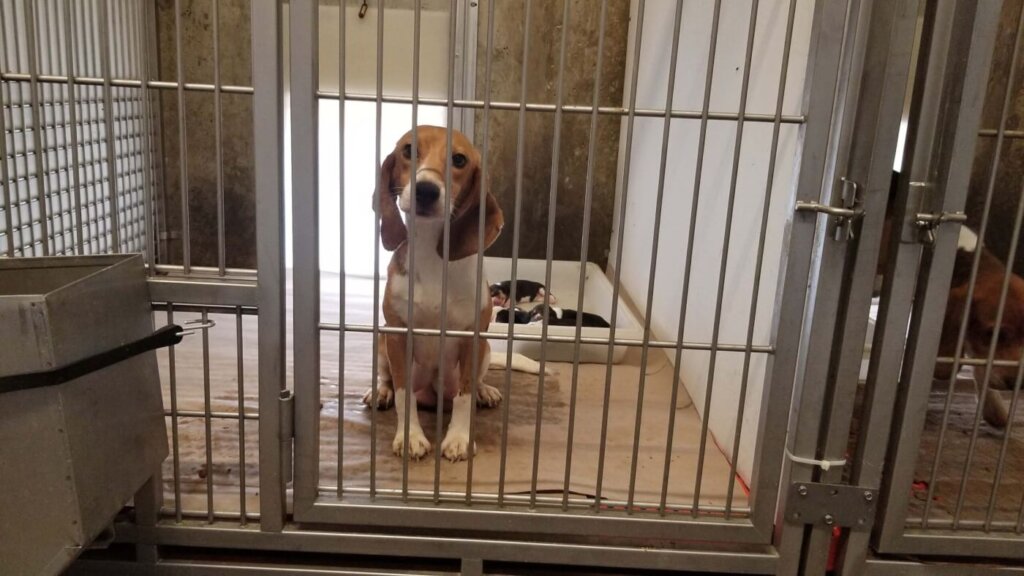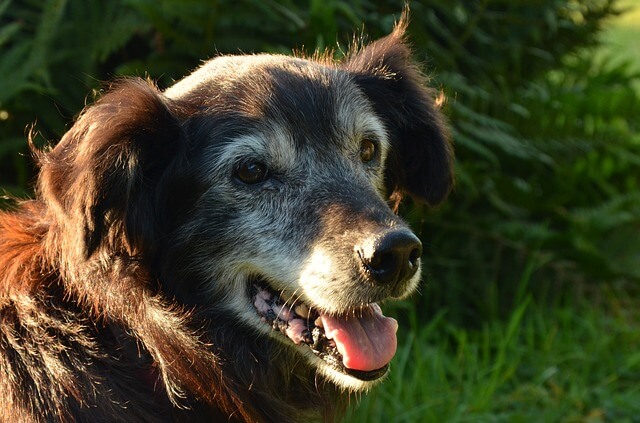
What Your Senior Animal Can’t Tell You – but You Need to Know
Picture this: you’ve retired overseas – to a country where you don’t understand the language.
A friendly local looks after you but doesn’t really understand how you feel, because of the language barrier. Over the years, you start to get some aches and pains, and eventually, everything hurts. You have a hard time getting comfortable. Your joints ache so much that it can be hard to stand up and walk – sometimes, you even trip and fall, which makes you hurt even more. You used to love to be outdoors to go for a run, but now, that’s impossible.
To make matters worse, your eyesight is going, and you can’t hear well. The world’s becoming a confusing place. All you can really do is lie around and sleep, but that’s so boring, and besides, the throbbing pain in your joints keeps you from sleeping properly a lot of the time.
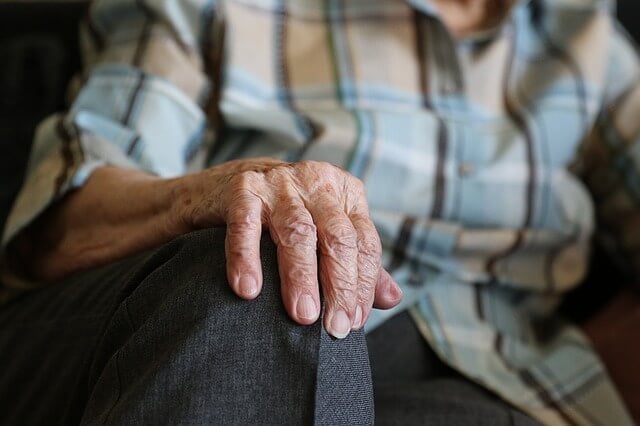
Your liver has deteriorated, so you often feel queasy, but you’ve no way to communicate that. You also get diarrhoea, and that’s a big problem because you can’t hold it long enough to get your achy, stiff body to the bathroom – so you often have accidents, and that makes you feel stressed and ashamed.
You wish you could tell someone all the things that are bothering you. No one really looks at you much any more, so no one notices how poor your quality of life has become. You don’t enjoy life now, but there’s no escape. Every morning, you wake up and have to face that relentless pain yet again…
Sounds awful, doesn’t it? In reality, many of our animal companions might tell a version of this story – if they had the language to do so.
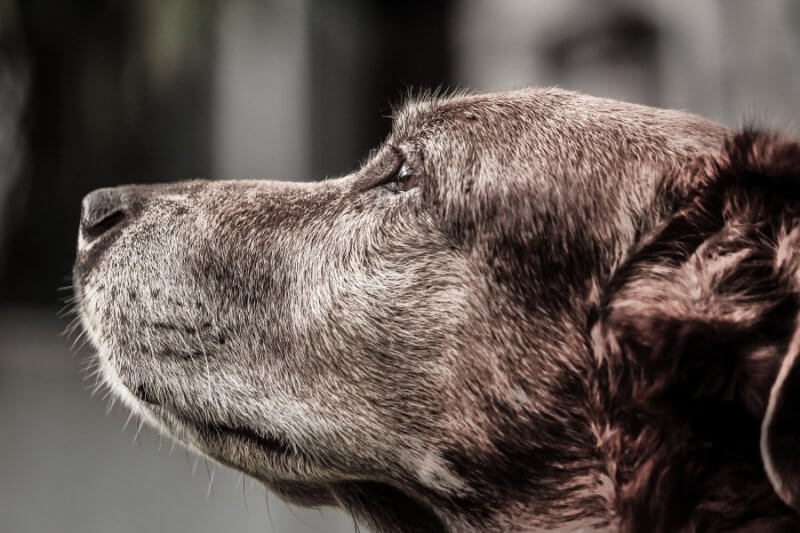
As they age, their bodies undergo many changes that may sneak up on guardians who aren’t paying close attention. That’s why it’s vital to put your hands on your animals regularly – every single day, in fact. This is not only to show them affection and reassure them that you care but also to check them over thoroughly: peek into their mouths and ears, check under their tails, part their fur, examine their feet – including pads and nails – and run your hands over their entire body.
Never assume that a strange new behaviour or symptom is “just old age”. Feel, look, sniff, and notice – you are searching for problems that could make your animal friend uncomfortable or be life-threatening.
Warning Signs to Look Out For
- Is your animal companion whimpering, panting, or showing signs of lethargy, excessive sleepiness, aggression, or disorientation?
- Is the belly bloated or distended? Has there been sudden weight loss or gain – or increased water intake or urination?
- Is the animal’s coat matted, coarse, patchy, or emitting a bad odour?
- Is the skin red, raw, or oozing? Are there new lumps, warts, scabs, or parasites?
- Is the animal limping, having difficulty getting up or walking, or exhibiting stiffness or lack of coordination?
- Are the eyes dry, cloudy, watery, discoloured, or showing a discharge? Does his or her eyesight seem to be deteriorating?
- Do the ears seem to be a source of discomfort? You might notice head shaking, itchiness, a foul smell, crustiness, discharge, or apparent loss of hearing.
- Check the teeth: are any broken or loose, does the breath smell bad, are there signs of tartar or plaque, or are the gums red or receding?
- Is the animal’s breathing laboured or irregular? Is he or she coughing, gagging, sneezing, congested, or breathing open-mouthed?
- Have you noticed vomiting, a loss of appetite, constipation, straining, diarrhoea, or loose, bloody, or black stools?
- Is there redness or discharge around the anus or genitals?
- Are the animal’s paws tender, or are the nails split, overgrown, or ingrown?
Many of these symptoms are caused by conditions that are highly treatable, so be sure to get your animals to the vet right away so they can start on the road to recovery and feeling better.
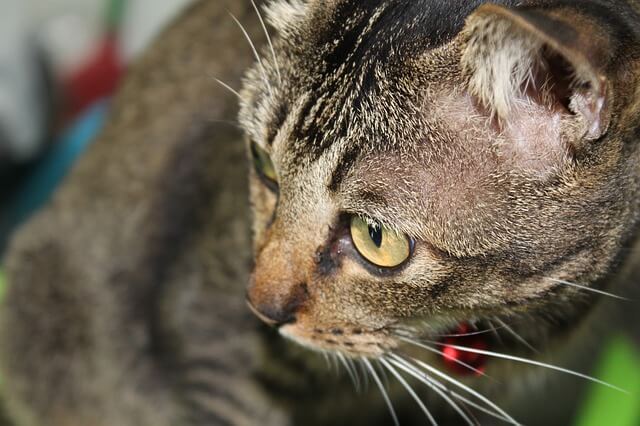
Caring for a Senior Animal
- Do elevate your animals’ food and water bowls so that they don’t have to crouch down to eat and drink.
- Do walk, play with, and exercise your animal – movement and activity are good for every system in the body.
- Do make sure that your dog gets more frequent toilet breaks and your cat has access to a clean litter tray at all times.
- Do help animals stay warm in winter (coats, sweaters, heating pads) and cool in summer (kiddie swimming pools, fans, air conditioning).
- Do put down non-skid flooring indoors.
- Do provide animals with comfortable, quality bedding to cushion their ageing joints.
- Do give your animals a safe, quiet, and peaceful place to which they can retreat.
- Do consider putting a permanent ramp for dogs over your steps and carrying one in your car.
- Do get blood tests done once a year, even if you think nothing is wrong.
- Don’t let senior animals jump out of your vehicle or off the couch or bed.
- Don’t assume that health problems are just an inevitable symptom of old age – seek professional advice from a trusted veterinarian.
- Don’t put your animals through painful surgeries or other procedures that have little chance of prolonging life, that come with a lengthy or difficult rehabilitation, and/or that will result in a poor quality of life.

Know When to Say ‘When’ on Your Animal’s Behalf
Some conditions are not treatable and cause considerable discomfort. If you’re pretty sure that your animal is in pain every day and/or has a terminal illness, don’t prolong the agony just because the decision to euthanise is hard to make. Put your companion’s comfort first.
Our animals deserve a dignified, peaceful death – timed to take place before things become unbearable. When in doubt, consult someone whose judgement you trust. Get a second opinion and a third if you need to, but if your gut tells you that your animal is suffering, don’t delay – arrange for euthanasia as quickly as possible, preferably at home, surrounded by his or her loved ones.
Animals Are Suffering in Laboratories – Help Save Them Now
